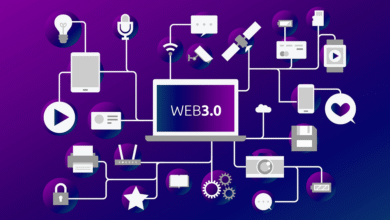Green Tech: Innovations Driving Sustainability and Climate Action

Green Tech:
Climate change and environmental degradation are among the biggest challenges facing the world today. With rising temperatures, extreme weather events, and the loss of biodiversity, urgent action is needed to address these issues and create a more sustainable future. One way to tackle these challenges is through the development and adoption of green technologies, which offer innovative solutions to reduce carbon emissions and promote sustainable practices. In this article, we will explore some of the latest innovations in green tech that are driving sustainability and climate action.
Renewable Energy:
Renewable energy is one of the most promising areas of green tech. As the world transitions away from fossil fuels, renewable energy sources such as solar, wind, and hydropower are becoming increasingly important. Solar and wind power are already competitive with fossil fuels in many parts of the world, and new innovations are making them even more efficient and cost-effective. For example, some companies are developing new materials for solar panels that can capture more sunlight, while others are working on more efficient wind turbines that can generate more electricity from less wind.
Read More:5 High Paid AI Jobs in the Medical Field in UK 2023
Energy Storage:
One of the challenges of renewable energy is that it is intermittent – solar panels only produce energy during the day, while wind turbines only generate electricity when the wind is blowing. To address this issue, energy storage technologies are being developed to store excess energy when it is available and release it when it is needed. This includes batteries, pumped hydro storage, and thermal energy storage. New developments in energy storage are making it more affordable and efficient, which could help to overcome one of the biggest barriers to the adoption of renewable energy.
Smart Grids:
Smart grids are an innovative technology that can help to optimize energy usage and reduce carbon emissions. They use sensors, meters, and other devices to monitor energy usage and manage the flow of electricity. This can help to balance the supply and demand of electricity, reduce energy waste, and enable the integration of renewable energy sources into the grid. Smart grids can also enable consumers to monitor their energy usage in real-time, which can encourage more sustainable behaviors.
Circular Economy:
The circular economy is a concept that aims to eliminate waste and promote the reuse and recycling of resources. Green tech innovations in this area include new materials and manufacturing processes that are designed to minimize waste and enable the reuse of materials. For example, some companies are developing plant-based materials to replace traditional plastics, while others are using 3D printing technology to create products with less waste. By transitioning to a circular economy, we can reduce our reliance on finite resources and reduce the environmental impact of our consumption.
Transportation:
Transportation is one of the largest sources of carbon emissions, and green tech innovations in this area are critical to addressing climate change. Electric vehicles (EVs) are becoming increasingly popular, and advancements in battery technology are making them more affordable and practical. Additionally, autonomous vehicles (AVs) could help to reduce emissions by optimizing routes and reducing congestion. Other green tech innovations in transportation include alternative fuels such as hydrogen, as well as sustainable urban planning and design.
Read More:4 Simple Things You Can Do to Be More Secure Online
Conclusion:
Green tech innovations offer exciting opportunities to address the urgent challenges of climate change and environmental degradation. From renewable energy and energy storage to smart grids and the circular economy, these technologies offer innovative solutions to reduce carbon emissions and promote sustainable practices. By embracing these innovations and working together to implement them on a global scale, we can create a more sustainable future for ourselves and future generations.












3 Comments